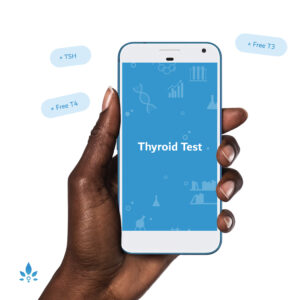What is Postpartum Thyroiditis?


Your thyroid gland—a butterfly-shaped organ located in the front of your neck—produces thyroid hormones that help regulate your metabolism. Too much or too little thyroid hormone can cause problems with your metabolism. While this can cause issues in pregnancy, it can also cause problems after you deliver, too.
Postpartum thyroiditis is one such condition that may help explain why you constantly feel \” off\” since your little bundle of joy arrived. It can also be why you feel jittery and shaky, and then very cold and tired. Many women have not heard of this medical condition and blame all these symptoms on life with a newborn, but not getting the right treatment can make life miserable.
Postpartum thyroiditis happens when the thyroid gland becomes inflamed after giving birth. At first, this leads to a surge of thyroid hormone production and may cause symptoms of hyperthyroidism (quickened pulse, feeling hot, feeling anxious or nervous). After a while, the thyroid becomes “burned out” and symptoms of hypothyroidism show up: feeling tired, cold, constipated, or noticing hair loss. Some women have all of these symptoms, while others have none or just a few.
We aren’t sure what causes postpartum thyroiditis, but an issue with the immune system is thought to play a role. About 5 to 10 percent of women in this country will develop postpartum thyroiditis, with some women at higher risk for this condition. This includes anyone with another autoimmune disease (such as diabetes or arthritis), or those who’ve had thyroid issues before.
Symptoms don’t always show up immediately after birth. In fact, this condition can show up anytime during the first year. Your doctor can screen you for this with a blood test of the various thyroid hormones, and treatment depends on which phase of the disorder you are in. Mild cases don’t always need treatment, while some women in the low thyroid phase are given thyroid hormone to replace their low levels.
The good news is that postpartum thyroiditis doesn’t last forever—about 80 percent of women will eventually go back to normal thyroid function. The bad news is that many women chalk up their symptoms to normal postpartum life, when in reality they could be helped if they were diagnosed. If you feel like you might have a thyroid issue after giving birth, mention it to your doctor or midwife so they can get you the help you need.
Consider a thyroid test and get to learn more.
Sources:
- The American Thyroid Association
- Thyroid disease and pregnancy.
Johns Hopkins Medicine - Postpartum thyroiditis
Powered by Bundoo®













































